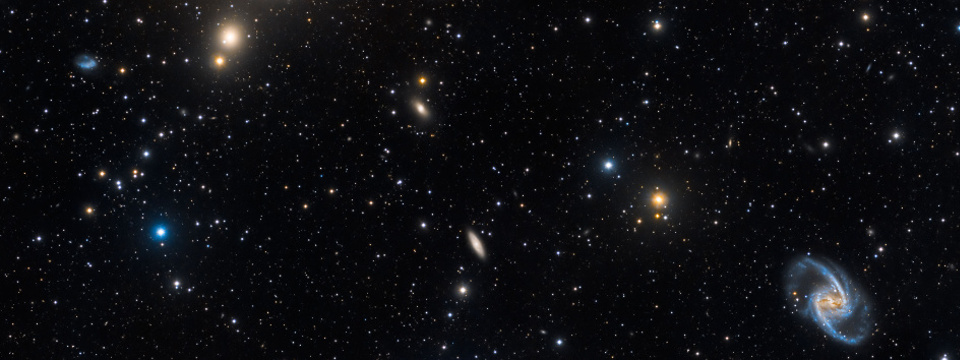
I am a Professor at the Kapteyn
Institute at the University of Groningen, From 2011
until 2016 I have been its (Scientific) Director. From 2017
until 2020 I was the education director of the Master
Astronomy. I study the formation and evolution of galaxies, by
studying their structure, kinematics and stellar populations.
At the moment, I my research is mostly focused on studying
dwarf galaxies in the nearby Universe, but I am also very
interested in working on new technique with computer
scientists s to better study the galaxy population.
Contact
information:
Address: Kapteyn Institute, Landleven
12, 9747AD Groningen, or PO Box 800, 9700AV Groningen, The
Netherlands
Email: peletier@astro.rug.nl or
r.f.peletier@rug.nl
Kapteyn
Institute
The Kapteyn Institute is one of the 10 research institutes of the Faculty of Mathematics and Natural Sciences (FMNS, FWN) at the University of Groningen. Its mission is to do research in astronomy, and to be responsible for the astronomy teaching at the University. Together with Leiden we are the only University in the Netherlands offering a bachelor in astronomy. We also offer a master program in astronomy. We have a large PhD programme with more than 50 PhD students. The Kapteyn Institute is one of the 4 partners in NOVA, the Netherlands Research School for Astronomy.
See here for my updated list of publications.
Recent News
The Kapteyn Institute is one of the 10 research institutes of the Faculty of Mathematics and Natural Sciences (FMNS, FWN) at the University of Groningen. Its mission is to do research in astronomy, and to be responsible for the astronomy teaching at the University. Together with Leiden we are the only University in the Netherlands offering a bachelor in astronomy. We also offer a master program in astronomy. We have a large PhD programme with more than 50 PhD students. The Kapteyn Institute is one of the 4 partners in NOVA, the Netherlands Research School for Astronomy.
See here for my updated list of publications.
Recent News
December 2023: PhD Thesis Sara Eftekhari
November 2023: Press release of the first Euclid results (including the Perseus Cluster)
July 2023: Euclid lauch
March 2023: Our Interreg North Sea proposal Darker Sky was approved! The plan is to reduce light pollution in 5 harbors with 15 patners across Europe, and use these as examples to fight light pollution.
December 2022: PhD Thesis Jonas Bremer (2nd promotor)
November 2022: PhD Thesis Abolfazl Taghribi (3rd promotor)
October 2022: PhD Thesis Kristiina Verro (2nd promotor)
June 2022: Our Interreg North Sea proposal Keep it Dark was approved! Together with the Universities of Oldenburg and Aarhus we will provide a robust measuring system for the brightness of the sky, making it possible to measure light pollution accurately!
June 2022: PhD Thesis Nelvy Choque Challapa
May 2022: PhD Thesis Marco Vasquez Beltran (2nd promotor)
Feb 2022: PhD Thesis Teymoor Saifollahi
October 2021: Official opening of the Dark
Sky Park Lauwersmeer telescope.
May 2021: The website of the programme 'Donkerte
van de Wadden' is on-line! This is a programme to create
awareness for darkness in the North of the Netherlands.